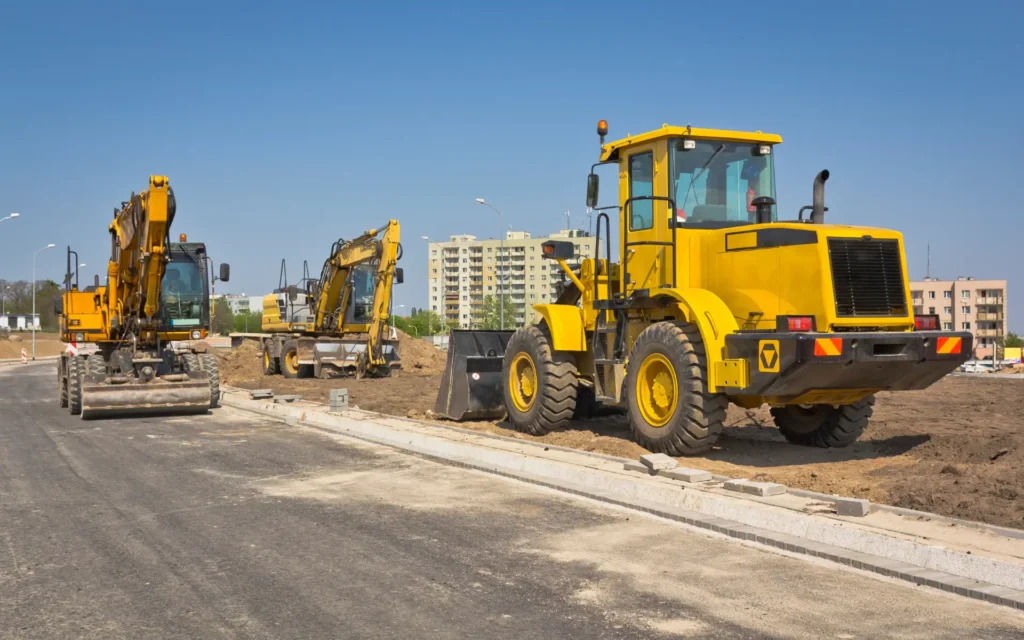A construction project’s success relies heavily on the accuracy of its planning, and that starts with a thorough survey. Whether you’re building a new structure, renovating an existing one, or expanding your property, a professional survey provides the critical data needed to ensure everything goes smoothly. Surveys help you identify potential challenges, determine precise boundaries, and gain a clear understanding of the site’s topography. This foundational step can save you time, money, and stress by ensuring your project is built on solid, well-informed ground.

Why Surveys Are Essential
A survey is much more than a simple measurement of the land. It provides in-depth information that influences almost every aspect of a construction project. The right survey will:
- Identify Site Boundaries: Know exactly where your property lines lie to avoid legal disputes and encroachments.
- Reveal Topography and Ground Conditions: Understand the land’s features, slopes, and potential obstacles like unstable soil, trees, or water drainage issues.
- Assess Existing Structures: For renovation or extension projects, surveys ensure that any modifications or additions will integrate seamlessly with the current building.
- Ensure Compliance: Surveys ensure that your project meets local zoning regulations, building codes, and environmental guidelines.
Investing in a professional survey at the start of your project is an investment in its future. It ensures that you can confidently move forward with design and construction, knowing the data is accurate and reliable.
Types of Surveys We Offer
We offer a variety of surveys to meet the unique needs of each project. Each survey type provides a different set of data but all are crucial for laying a strong foundation for construction. Here are the main types of surveys we offer:
- Land Surveys
Land surveys are the cornerstone of every construction project. They determine the exact boundaries of a property, giving you a clear understanding of where construction can take place. This type of survey measures the dimensions of the land, marking property lines, and noting any features that may affect construction, such as roads, rivers, or neighbouring buildings.- Benefits of Land Surveys:
- Prevents encroachment on neighbouring properties
- Helps with property transactions, ensuring legal boundaries
- Essential for determining building placement and orientation
- Benefits of Land Surveys:
- Structural Surveys
Structural surveys assess the condition and stability of existing buildings. If you’re planning a renovation, extension, or repurposing project, understanding the structural integrity of the building is critical. A structural survey identifies issues such as cracks, subsidence, damp, or foundation problems that may need to be addressed before construction can begin.- Benefits of Structural Surveys:
- Highlights areas that may need reinforcement or repairs
- Identifies underlying issues that could impact safety
- Helps in determining how best to integrate new structures with old
- Benefits of Structural Surveys:
- Boundary Surveys
Boundary surveys are typically carried out when there is a dispute or uncertainty over property lines. Whether there’s ambiguity regarding where your property ends or you need to resolve a neighbour dispute, a boundary survey clarifies the exact location of your property boundaries. This survey ensures there are no conflicts and that the construction occurs within legal limits.- Benefits of Boundary Surveys:
- Resolves boundary disputes with neighbours
- Establishes clear property lines for building permits and approvals
- Reduces the risk of costly legal issues or project delays
- Benefits of Boundary Surveys:

The Importance of Professional Surveys
While some may consider conducting a survey themselves or relying on informal measurements, professional surveys offer accuracy, legal protection, and peace of mind. Here’s why you should trust experts:
- Expertise and Accuracy
Surveying requires specialised knowledge and equipment. Professional surveyors have the experience to ensure data is gathered accurately, and they are familiar with industry standards and regulations. The results are precise, helping you make informed decisions that avoid costly mistakes. - Legal Compliance
Many construction projects require surveys to comply with local zoning laws, building codes, and environmental regulations. A professional surveyor ensures your project meets all legal requirements, protecting you from potential fines, delays, or issues with planning permissions. - Prevents Costly Mistakes
A poor-quality survey can result in mistakes during construction—like building in the wrong location, failing to account for ground conditions, or discovering structural issues too late. These errors are not only costly to fix but can also delay your project. - Clear Communication
Surveys provide a solid foundation of data that architects, engineers, and contractors can rely on. By working from accurate, professional survey data, everyone involved in your project can communicate effectively and stay on the same page.
Conclusion
By starting your project with precise planning, you set the stage for successful, timely, and cost-effective construction. Don’t underestimate the value of a thorough survey—contact us today to discuss how we can help you lay the groundwork for success.

